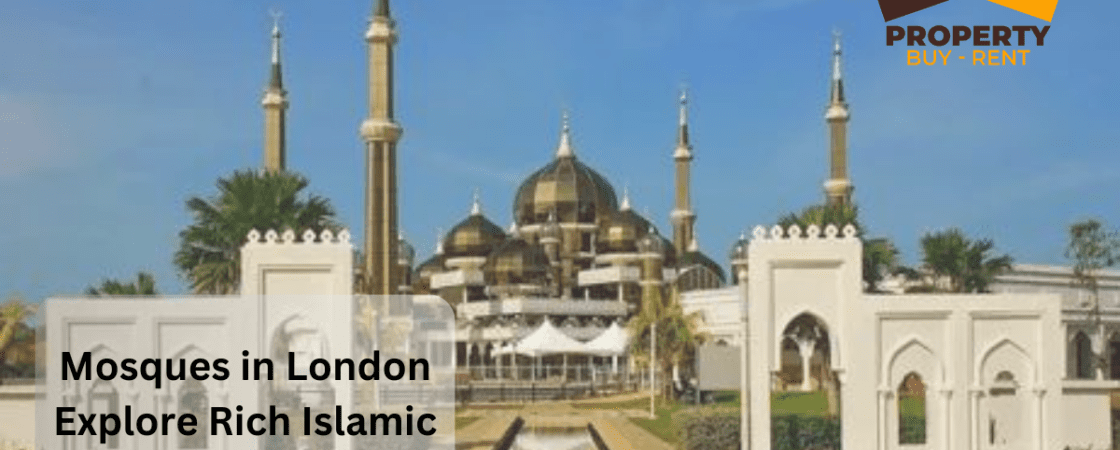Introduction
London, a global metropolis known for its rich history, cultural diversity, and iconic landmarks, is also home to a vibrant Muslim community. Mosques in London serve as essential hubs for religious and social activities, reflecting the city’s multi-faith and multicultural fabric. In this comprehensive guide, we will delve into the significance of mosques in London, exploring their history, architecture, and community contributions. Join us on a journey through the heart of London’s Islamic heritage.
Mosques in London: A Glimpse into the Past and Present
The Historical Roots of Islamic Presence in London
The Islamic presence in London can be traced back to the late 19th century when the first Muslim community settled in the city. These early pioneers laid the foundation for what would eventually become a vibrant and diverse Muslim community in London.
Iconic Mosques in London: Awe-Inspiring Architectural Marvels
London boasts several iconic mosques that are not only places of worship but also architectural marvels. The East London Mosque, with its stunning Ottoman-style design, and the London Central Mosque in Regent’s Park, with its golden dome, are prime examples of the city’s religious landmarks.
Community-Centric Mosques: Fostering Unity and Social Engagement
Beyond their religious significance, mosques in London play a pivotal role in fostering unity and social engagement within the Muslim community. They serve as community centers, offering educational programs, youth activities, and support for new immigrants.
The Cultural Melting Pot: Embracing Diversity in London’s Mosques
LSI Keyword: Multicultural Congregations in Mosques
London’s mosques are a testament to the city’s multicultural ethos. Congregations at these places of worship are diverse, representing various ethnicities and nationalities. This harmonious blend enriches the spiritual experience and creates a sense of unity among worshippers.
Embracing Islamic Traditions: Friday Prayers and Festivals
Friday prayers, also known as Jumu’ah, hold special significance in Islamic tradition. London’s mosques witness an influx of worshippers during these congregational prayers, where the spirit of brotherhood and devotion is palpable. Additionally, Muslim festivals like Eid-ul-Fitr and Eid-ul-Adha are celebrated with great enthusiasm and communal gatherings in mosques.
Islamic Education: Madrasas and Study Circles
Many mosques in London host madrasas (Islamic schools) and study circles that offer religious education to children and adults alike. These educational programs aim to instill a strong understanding of Islamic principles and values in the younger generation, promoting a well-informed and spiritually aware community.
Mosques as Cultural Hotspots: Bridging the Gap
LSI Keyword: Interfaith Dialogues and Cultural Exchange
Mosques in London actively engage in interfaith dialogues, opening avenues for understanding and collaboration among people of different faiths. These dialogues foster mutual respect, dispel misconceptions, and promote harmony in a diverse society.
Art and Culture: An Expression of Identity
The art and culture within London’s mosques provide a unique glimpse into the identity of the Muslim community. Rich calligraphy, intricate patterns, and breathtaking architecture adorn the walls and interiors of these sacred spaces.
The artistry reflects the profound spiritual devotion of the community and showcases the creativity and craftsmanship passed down through generations. Visitors to these mosques are captivated not only by their beauty but by the sense of peace and serenity that envelops the space.
Engaging with the Community: Charity and Social Services
Mosques in London are at the forefront of charitable activities, providing support to the less fortunate through food banks, shelters, and other social services. Their commitment to serving the community showcases the true essence of Islamic teachings.
FAQs About Mosques in London
- What is the significance of the golden dome on the London Central Mosque? The golden dome symbolizes the celestial sphere and the eternal presence of God. It also serves as a distinctive feature of Islamic architecture.
- Can visitors participate in mosque events and festivals? Yes, visitors are welcome to participate in events and festivals hosted by mosques, promoting cultural exchange and mutual understanding.
- How can one support the charitable activities of mosques? To support charitable activities, individuals can volunteer their time, donate resources, or contribute to fundraising initiatives organized by the mosques.
- Do mosques in London have facilities for ablution (wudu)? Yes, most mosques in London have designated areas for ablution, ensuring that worshippers can perform ritual purification before prayers.
- How can tourists learn more about the history of London’s mosques? Tourists can join guided tours or attend informative sessions organized by mosques to learn about their history and cultural significance.
- Are there any restrictions for non-Muslim visitors inside mosques? While mosques are open to visitors of all faiths, visitors are expected to respect the sacred nature of the space and follow any guidelines set by the mosque administration.
Conclusion
Mosques in London are not just places of worship but vibrant centers of cultural exchange, education, and community engagement. They embody the spirit of a diverse and inclusive society, bridging the gap between different faiths and fostering a sense of unity. From historic landmarks to community-centric spaces, these mosques play a crucial role in enriching the city’s cultural tapestry. As London continues to evolve, its mosques remain steadfast in upholding the Islamic heritage and contributing positively to the local community.




